Verdi: Aida (Downes)
Introduction
Verdi's opera of 1871 was especially commisoned by the Khedive of Egypt, to be performed at the Khedivial Opera House in Cairo. The opera House itself was built to commemorate the opening of the Suez Canal in 1869, and Verdi's own 'Rigoletto' was the first opera to be performed there. Verdi took a little persuading to get a new commision written down, but an agreement which made him sole-controller of the libretto, together with a payment that made him the highest-paid composer in Europe soon got his creative juices flowing.
His idea was really to write something which would be suitable for the Paris Opera, full of pomp, spectacle and ballet, and with ultimate control he managed to create something that quickly became one of the most popular classical works ever.
This ROH production, filmed over two nights in the summer of 1994, is far more traditional than Robert Wilson's more recent 'Noh-inspired' offering from Opus Arte, and for that is a welcome reissue.
Video
A watchable NTSC anamorphic picture, which doesn't have too much trouble in the darker scenes, and brings out the vivid colours of the costumes very nicely for a relatively 'old' recording.Audio
The stereo sound is reasonably well-balanced, but can become a little cramped in the climaxes. All the soloists come over well, except for times when Luciana d'Intino (Amneris) stuggles with some of her notes and disappears from time to time.
Extras
None.
Conclusion
There are many productions of Aida around on DVD now, and so any new re-issued disc should have something special.
This Royal Opera production has many fine moments, but perhaps the heat in the opera house (it was 'jackets off' in the pit, which tells us something about the temperature) affected some things that would have been fine on other nights. Most notably, intonation problems in some of the passages from both singers and orchestra was painfully obvious. The trumpet call at the beginning of Act 2 is dreadfully out off tune, and Mark Beesley (the Egyptian King) is sharp most of the time, with very little depth to his voice - but I'm not sure that the heat can explain all of this.
The production itself is very bright and colourful, but looks a little tame compared to that of the famous Met production, and this may be why Brian Large concentrates the cameras on close-ups rather than trying too hard to make the set seem more lavish than it is.
The dance sections are not as much fun as I would like, with some quite dire mock-fighting and very lumpen choreography, but here again it could have been Edward Downes' tempi, which lie on the relaxed side of exciting for these scenes.
The best performance on stage comes from Robert Lloyd (Ramfis) who strikes an imposing figure height-wise, and has a voice which emanates seriousness, depth, and downright menace when necessary.
Dennis O'Neill (Radames) is more of a lyric than heroic Italianate tenor, but still carries off the role very well indeed. 'Celeste Aida' comes right at the start of the opera, and quite often sounds as if the soloist needs to have warmed up a bit more, but O'Neill is on fine form. It would though have been more polite to actually look at his lover as they are entombed
alive together, but I'm sure Radames had things on his mind.
Cheryl Studer (Aida) is a bit stiff as an actress, and I'm not at all sure about the make-up she has been given to turn her into an Ethiopian (perhaps the heat got in the way again, but some looked as if it was dripping), but sings well up to a point. She doesn't quite pull off 'O patria mia' successfully, but the ending is absolutely beautiful.
Verdi enjoys depicting father-daughter relationships in many of his works, and this is no exception. Here, the father persuades his daughter to betray her lover and his country, and Alexandru Agache as 'Amonasro' is fantastic as the imprisoned Ethiopian king. This is one hos favourite roles, and throws himself into it with relish. Together with Robert Lloyd, this disc is worth it for these two performances alone.
The chorus is on form, sounding wonderfully Russian in places, and is never out of step with the music. And despite the intonation problems I've already mentioned from the band, they play brilliantly for most of the opera, and the trumpets make amends for any previous slip-ups in the triumphal march (which of course contains the music everyone has heard, whether they know it or not).
So, probably not the best version overall, or a gem from the archives but with some worthwhile moments and fun nonetheless, although I would still recommend the Met recording mentioned earlier.
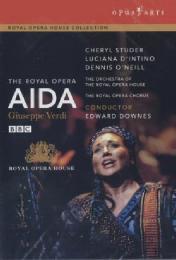

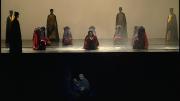
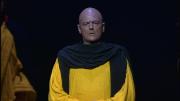
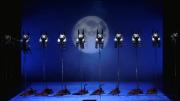
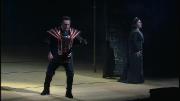
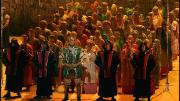
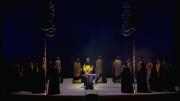

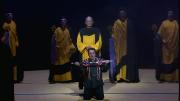
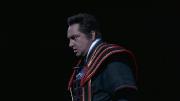































Your Opinions and Comments
Be the first to post a comment!